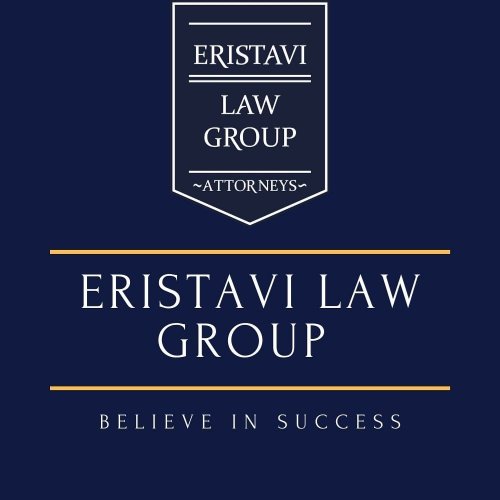Best Private Client Lawyers in Tbilisi
Share your needs with us, get contacted by law firms.
Free. Takes 2 min.
List of the best lawyers in Tbilisi, Georgia
About Private Client Law in Tbilisi, Georgia
Private client law in Tbilisi, Georgia, encompasses a wide range of legal services aimed at individuals and families. This field covers everything from estate planning and asset protection to inheritance, trusts, tax matters, family business succession, and philanthropic arrangements. The legal framework combines Georgian law, which has evolved significantly since Georgia’s independence, and in some cases, relevant international principles due to cross-border matters. Private client lawyers in Tbilisi help clients navigate complex regulations to ensure their personal and family interests are well-protected now and for future generations.
Why You May Need a Lawyer
There are several common situations where individuals may require legal assistance within the private client field in Tbilisi:
- Drafting or updating wills to ensure assets are distributed according to personal wishes
- Establishing trusts for asset protection, future generations, or charitable purposes
- Managing succession planning for family-owned businesses
- Advising on marital agreements, such as prenuptial or postnuptial agreements
- Resolving inheritance disputes or claims
- Facilitating wealth management and tax structuring for high net worth individuals
- Assisting in the acquisition, ownership, or transfer of real estate and other assets
- Obtaining residency or citizenship through investment
- Meeting compliance requirements for foreign asset ownership or income reporting
- Navigating cross-border legal issues affecting family members or assets abroad
Local Laws Overview
Private client matters in Georgia are primarily governed by the Civil Code of Georgia, the Law of Inheritance, tax regulations, and property laws. Some key aspects include:
- Inheritance Law: Georgian law stipulates both testate (under a will) and intestate (without a will) succession. Heirs are classified in order of priority, and certain family members have reserved shares.
- Will Formalities: Wills must be made in written form, signed by the testator, and may require notarization for added legal security.
- Trust Law: While traditional trusts are not a part of local law, alternative mechanisms for estate planning and asset protection are available.
- Real Estate: Foreign nationals can generally own real estate in Georgia, with some limitations applying to agricultural land.
- Taxation: Inheritance and gift taxes are not levied in Georgia, making it attractive for estate planning. However, tax residency, capital gains, and income taxes require attention for individuals with international assets.
- Family Law: Marital property regimes affect asset division, and family agreements can be recognized if they meet legal requirements.
- Residency and Citizenship: Georgia offers programs for investors and high net worth individuals, but these have specific legal and documentary requirements.
Frequently Asked Questions
What is a will, and do I need one in Georgia?
A will is a legal document detailing how your assets should be distributed after your death. While not mandatory, having a will ensures your estate is handled according to your wishes and may help avoid disputes among heirs.
How is inheritance distributed without a will?
If a person dies without a will, intestate succession laws apply. The Civil Code divides heirs into classes, with spouses, children, and parents usually having the strongest claims.
Can I leave property to anyone I choose?
You are generally free to bequeath your assets as you like, but certain close relatives may be entitled to a reserved share, even if not explicitly mentioned in the will.
Is there an inheritance or gift tax in Georgia?
No, Georgia does not impose inheritance or gift taxes. However, other tax considerations may apply, especially if assets are located abroad or the heirs are non-residents.
Can foreign nationals own property in Georgia?
Yes, foreigners can own most types of real estate in Georgia, except for agricultural land. Legal procedures for real estate ownership are relatively straightforward.
What are the legal requirements for making a will?
A will must be in writing and signed by the testator. While notarization is not strictly required, it is recommended for greater legal certainty and easier probate.
Can I set up a trust in Georgia?
Traditional Anglo-Saxon trusts are not recognized under Georgian law, but there are other mechanisms and legal structures that can be used for asset protection and inheritance planning.
What happens in the case of a dispute over an inheritance?
Inheritance disputes are resolved by the courts. Mediation and negotiation are sometimes used for settlement, but complex or contested cases may require formal litigation.
How does family law affect the division of assets?
Marital property is generally divided equally between spouses unless otherwise stipulated by agreement. Property acquired before marriage or as a gift or inheritance usually remains personal property.
What legal support is available for residency or citizenship applications?
Lawyers can guide you through Georgia’s residency and citizenship processes, assisting with documentation, investment requirements, and compliance with all legal obligations.
Additional Resources
Here are some helpful resources and organizations for those seeking guidance on private client legal matters in Tbilisi, Georgia:
- Ministry of Justice of Georgia - Responsible for wills, inheritance, and notarization
- Public Registry of Georgia - Property registration and records
- Notary Chamber of Georgia - Information on finding notaries and notarizing documents
- Georgian Bar Association - Directory of licensed lawyers in Tbilisi
- Tax Authority of Georgia - Guidance on tax residency, reporting, and compliance
- Local embassies and consulates - Assistance with cross-border legal issues
Next Steps
If you need legal assistance in the private client field in Tbilisi, Georgia, consider the following steps:
- Assess your situation to determine the specific legal issue or goal you need to address
- Gather all relevant documents, such as property deeds, business records, or family agreements
- Contact a qualified private client lawyer or law firm in Tbilisi for an initial consultation
- Outline your objectives and ask about the costs, timeline, and process for resolving your matter
- Follow your lawyer’s advice regarding any immediate legal steps, documentation, or compliance actions
- Stay informed and involved throughout the legal process to ensure your interests are fully protected
Seeking professional legal advice ensures that your personal matters are handled efficiently and in accordance with Georgian law, giving you peace of mind both now and in the future.
Lawzana helps you find the best lawyers and law firms in Tbilisi through a curated and pre-screened list of qualified legal professionals. Our platform offers rankings and detailed profiles of attorneys and law firms, allowing you to compare based on practice areas, including Private Client, experience, and client feedback.
Each profile includes a description of the firm's areas of practice, client reviews, team members and partners, year of establishment, spoken languages, office locations, contact information, social media presence, and any published articles or resources. Most firms on our platform speak English and are experienced in both local and international legal matters.
Get a quote from top-rated law firms in Tbilisi, Georgia — quickly, securely, and without unnecessary hassle.
Disclaimer:
The information provided on this page is for general informational purposes only and does not constitute legal advice. While we strive to ensure the accuracy and relevance of the content, legal information may change over time, and interpretations of the law can vary. You should always consult with a qualified legal professional for advice specific to your situation.
We disclaim all liability for actions taken or not taken based on the content of this page. If you believe any information is incorrect or outdated, please contact us, and we will review and update it where appropriate.
Browse private client law firms by service in Tbilisi, Georgia
Tbilisi, Georgia Attorneys in related practice areas.









